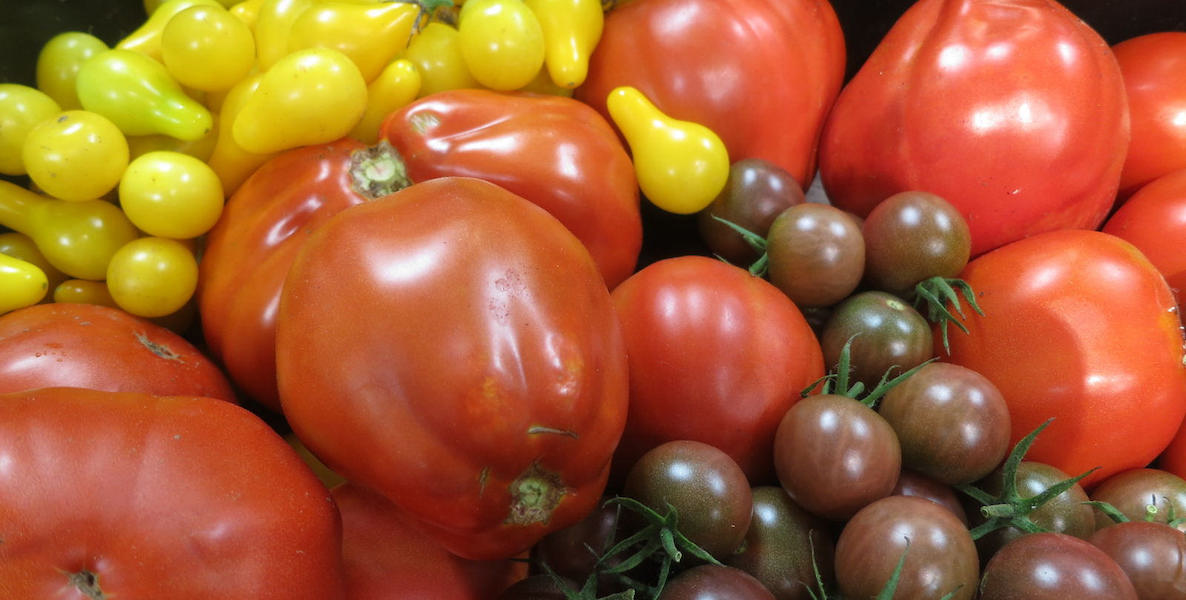Stainless steel tables and chairs are fixed in a square with the edges connected, in a room where light shines in through a wall of windows. A large dry erase board is attached to one wall, and on the opposite, cabinets full of cooking equipment overlook the room, quiet and still. Next to the tables, there is a kitchen, with open counter space and multiple stoves and ovens humming like idling engines, ready for immediate use.
When I first step in, I watch staff members of the Free Library of Philadelphia and a few volunteers prepare for the imminent influx of students from the Culinary Literacy program. This program, led by cooks, an English teacher, and social workers, provides a safe space for refugees to practice English while learning how to measure, mix, and make a variety of foods. An ESL course precedes the culinary events, and upon entering the Free Library, participants collaborate in groups, work through basic math, and think critically about the process of preparing food.
When the students enter the room, most of them are very quiet, or huddled together in groups with others who speak a familiar language. They are given small cookbooks with math and spelling problems alongside recipes. Today’s recipe is an Indian dish with chickpeas and spices that make the room fill up with rich, earthy scents. Before we start cooking, we must go through our list of ingredients, and plan out our measurements to accommodate the entire group.
![]() The first person I talk to is a 5-year-old boy, who swings his legs under a chair as his mother works next to us. Together, we spell out a word: c-h-i-c-k-p-e-a. I write the example on a spare piece of paper, and ask him to tell me what each letter is. He copies the letters carefully, his tongue sticking out slightly as he concentrates. While we are writing and talking, I find out that he is from Egypt, and his mother chimes in occasionally with information about her other children, and where they currently live in Philadelphia. She speaks with animation and peeks occasionally at her partner’s cookbook for answer she’s missed while we talk.
The first person I talk to is a 5-year-old boy, who swings his legs under a chair as his mother works next to us. Together, we spell out a word: c-h-i-c-k-p-e-a. I write the example on a spare piece of paper, and ask him to tell me what each letter is. He copies the letters carefully, his tongue sticking out slightly as he concentrates. While we are writing and talking, I find out that he is from Egypt, and his mother chimes in occasionally with information about her other children, and where they currently live in Philadelphia. She speaks with animation and peeks occasionally at her partner’s cookbook for answer she’s missed while we talk.

In another group, a man from Iraq, who was formerly a chef, says that he is looking for a job at a restaurant in Philadelphia. I ask him what he used to make, and he describes rice dishes and spices that have no English translation. He smiles, remembering.
The next woman I work with barely speaks any English at all. She copies what is written in the book, and, for the most part, keeps to herself. When cooking begins, she straightens in her seat, and reaches for the garlic. As soon as she gets a small knife in her hands, she peels and cuts with swiftness and precision. She separates the spices, and works with a cooking partner. They do not speak the same native language, but together they communicate which ingredients should be mixed. Her moves aren’t made gingerly — there is a force behind each motion and confidence.
![]() In addition to preparing and cooking the meal, we also play a supermarket game, where a line of fake plastic food is set out, and participants line up and pick the correct items from a list. After collecting their items, they present their baskets to a “cashier” who tells them how much it costs. With fake money they pay for their items and receive change. They laugh as they fill their miniature, hot pink shopping baskets with plastic produce.
In addition to preparing and cooking the meal, we also play a supermarket game, where a line of fake plastic food is set out, and participants line up and pick the correct items from a list. After collecting their items, they present their baskets to a “cashier” who tells them how much it costs. With fake money they pay for their items and receive change. They laugh as they fill their miniature, hot pink shopping baskets with plastic produce.
When it is time to eat, some students serve the food from large pots; others pour cups of water; and a few set out condiments and utensils. The Egyptian woman waves me over after everyone else has sat down, insisting that she give me a bowl of chickpeas before she makes one for herself. I feel a warmth emanating from deep inside me, a connection every person in the room.
One woman who has spoken very little, turns to me. Her teenaged son sits next to her. She smiles. “I am happy!” she says, “I am excited.”
Nina Solis is a first generation undergraduate student at the University of Pennsylvania studying Nursing and Creative Writing. In her spare time, she is a dancer, radio DJ, and activist. This is one in a series of articles that will run on The Citizen and SafeKidsStories.
Header Photo: Flickr




